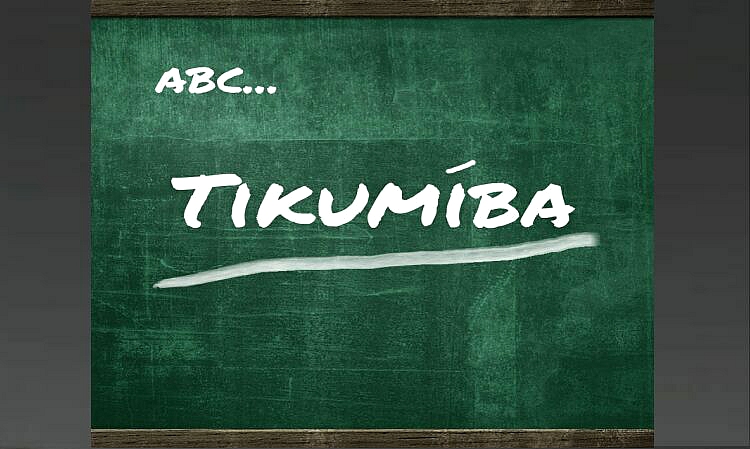In December Guntars Catlaks, the director of VISC, named nine mores that could be worked into the documents.
The virtues, to be joined by moderation and courage, are as follows - respect, solidarity, justice, virtue, fairness, freedom, responsibility, studiousness, caring, and empathy.
The two newcomer mores are to be interpreted loosely - moderation could be viewed as self-control, while courage could mean courage to participate and not keep silent. While the values/concepts to be worked into the law are life, family, freedom, work, culture, and the Latvian state.
Ineta Upeniece, a representative of VISC, said that the guidelines are being created not only to follow the law but also so that they are useful as well.
"We are creating not a codex of ethics and not a basket of Latvian values, but rather upbringing guidelines that are implemented by an educational institution. And we hope very much that the named virtues and the named values will help schools shape their vision, their own cultural environment," Upeniece told Latvian Radio.
While the vice-president of the Latvian Education Managers' association, Aija Melle, sees no point for the existence of the guidelines and moreover thinks that they pose censorship threats.
"The search for virtues, separate words, is useless I think, as every word should be looked at in context.
What does moderation mean, or studiousness for that matter? These words only acquire meaning in context. [..] I think it's a big censorship threat to schools," she said.
The controversial morality amendments establishing primacy of conventional ideas of what constitutes marriage and family life were okayed by Saeima last summer. The Re:Baltica Investigative Journalism Center has published research on how the 'constitutional morality' idea came about.
The next-in-line Education Minister Kārlis Šadurskis (Unity) called the amendments 'medieval' when they were first discussed. He said that the amendments should be made more contemporary so that teachers don't feel dogged by censorship threat.
VISC will send the current version of the guidelines to the University of Latvia and other education establishments for review. It is planned for the guidelines to be adopted by July 1.





























